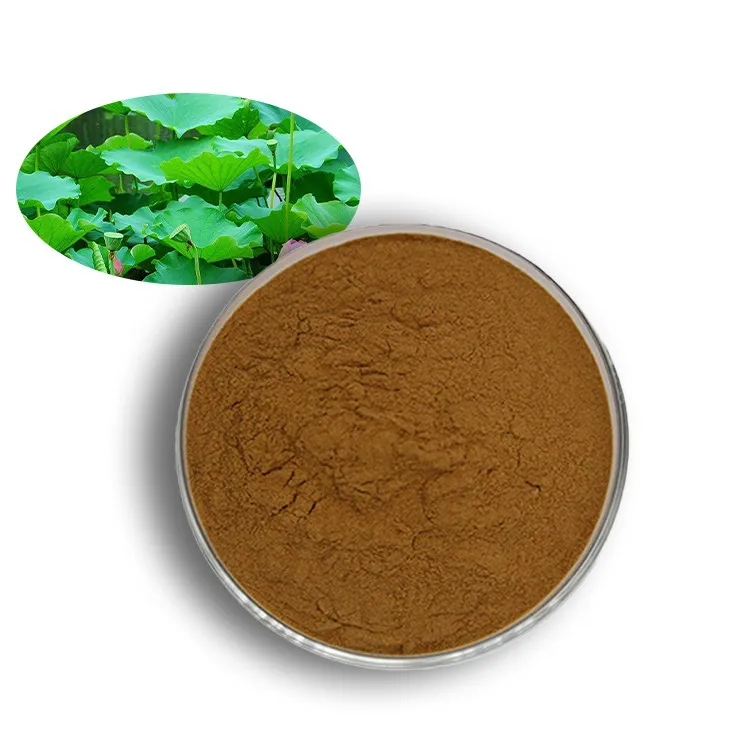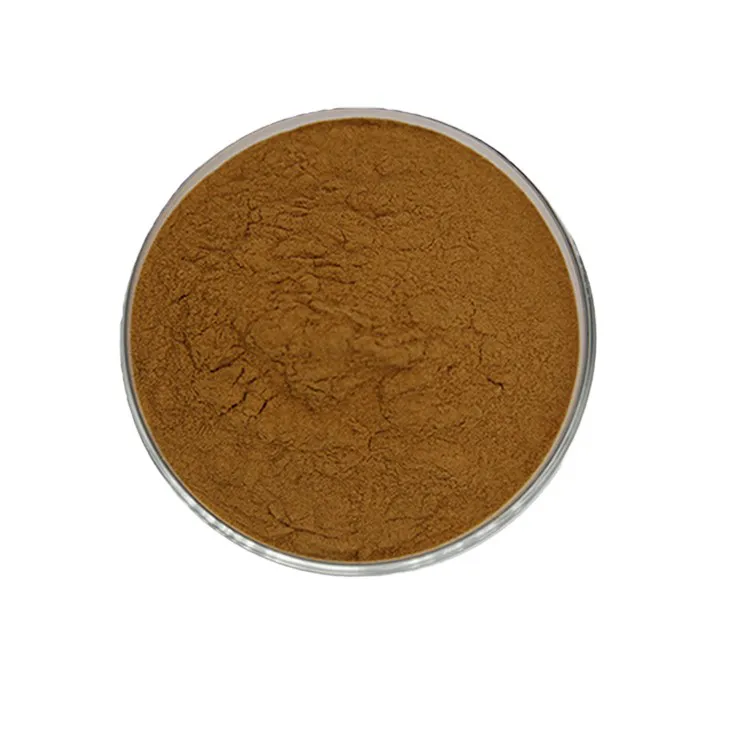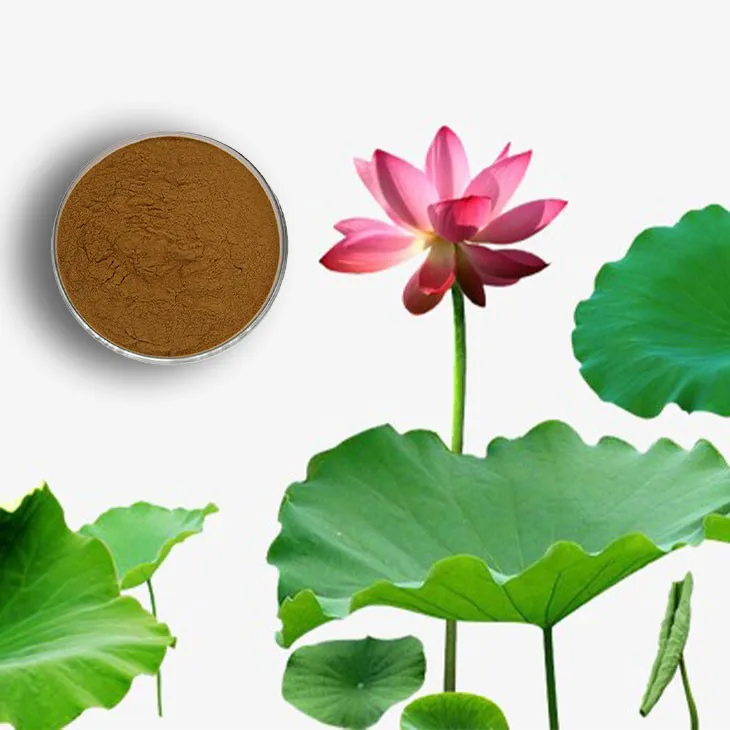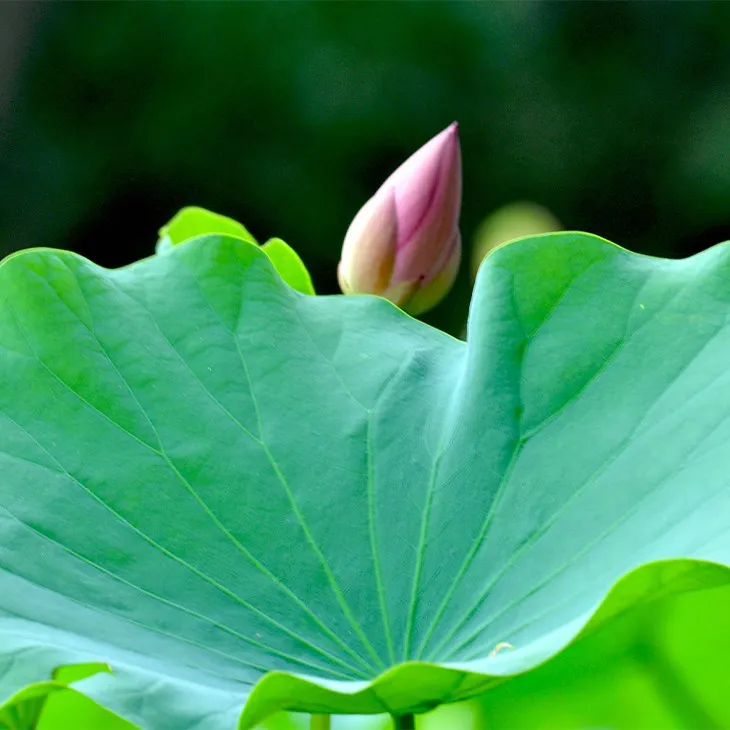- 0086-571-85302990
- sales@greenskybio.com
Certified organic lotus leaf extract.
2024-12-01

1. Introduction
Organic Lotus leaf extract, once certified, is a remarkable substance with far - reaching implications in numerous areas. The process of obtaining this extract from lotus leaves is a highly precise and organic one. This extract has been the focus of much attention due to its diverse properties and potential applications.

2. Health - related Properties
2.1 Rich in Bioactive Compounds
The organic Lotus leaf extract is abundant in bioactive compounds. These are substances that have a significant impact on the biological functions within the human body. One of the most notable groups of these compounds are flavonoids.
2.2 Antioxidant Properties of Flavonoids
Flavonoids, which are present in the organic Lotus leaf extract, are well - known for their antioxidant properties. Antioxidants play a crucial role in the body by neutralizing free radicals. Free radicals are unstable molecules that can cause damage to cells and DNA. By combating these free radicals, the flavonoids in the lotus leaf extract may potentially reduce the risk of chronic diseases. Chronic diseases such as heart disease, cancer, and diabetes are often associated with oxidative stress, which is caused by an imbalance between free radicals and antioxidants in the body. The presence of flavonoids in the lotus leaf extract helps to restore this balance, thereby providing a protective effect against these diseases.

3. Applications in the Beauty Industry
3.1 Sebum Control
In the beauty industry, the organic lotus leaf extract is highly valued. It can be incorporated into skincare products for its ability to control sebum production. Sebum is an oily substance produced by the sebaceous glands in the skin. For individuals with oily skin, excessive sebum production can lead to a shiny complexion, clogged pores, and an increased risk of acne. The lotus leaf extract helps to regulate sebum production, which in turn can contribute to a more balanced complexion. It achieves this by interacting with the sebaceous glands and modulating their activity. This makes it an ideal ingredient for skincare products targeted at oily skin types.

4. Environmental Significance
4.1 Eco - friendly Production
The certification of organic lotus leaf extract is not only important for its quality and properties but also for its environmental implications. Organic production methods ensure that the lotus leaves are sourced in an eco - friendly manner. This involves using sustainable farming practices that minimize the use of harmful chemicals such as pesticides and fertilizers.
4.2 Comparison with Conventional Extraction Methods
Compared to conventional extraction methods, organic extraction of lotus leaf extract is much less harmful to the environment. Conventional methods may involve the use of large amounts of synthetic chemicals that can contaminate the soil, water, and air. In contrast, organic extraction focuses on natural and sustainable processes. For example, it may use water - based extraction methods or other non - toxic solvents. This not only protects the environment but also ensures that the final product is free from harmful chemical residues, which is beneficial for both human health and the ecosystem.

5. Production Process of Organic Lotus Leaf Extract
5.1 Selection of Lotus Leaves
The first step in the production of organic lotus leaf extract is the careful selection of lotus leaves. Only high - quality, organically grown lotus leaves are chosen. These leaves are typically sourced from farms that follow strict organic farming standards. The selection process may involve examining the leaves for signs of damage, disease, or pest infestation. Only healthy and pristine leaves are selected for further processing.
5.2 Extraction Methods
There are several methods for extracting the active compounds from the lotus leaves. One common method is solvent extraction. In this process, a suitable solvent, such as ethanol or water, is used to dissolve the bioactive compounds from the leaves. The choice of solvent depends on the nature of the compounds to be extracted and the desired properties of the final extract. Another method is supercritical fluid extraction, which uses supercritical carbon dioxide as the solvent. This method has the advantage of being more environmentally friendly and can produce a high - quality extract with a relatively pure composition.
5.3 Purification and Concentration
After the extraction process, the resulting extract may contain impurities and a relatively low concentration of the desired bioactive compounds. Therefore, purification and concentration steps are necessary. Purification can be achieved through techniques such as filtration, centrifugation, or chromatography. These methods help to remove unwanted substances such as plant debris, proteins, and other contaminants. Concentration is then carried out to increase the proportion of the bioactive compounds in the extract. This can be done through evaporation or other separation techniques.
6. Quality Control and Certification
6.1 Quality Control Measures
To ensure the quality of the organic lotus leaf extract, strict quality control measures are implemented throughout the production process. These measures include regular testing of the raw materials (the lotus leaves), the intermediate products during extraction and purification, and the final extract. Testing may involve analyzing the chemical composition of the extract, checking for the presence of contaminants, and verifying the potency of the bioactive compounds. For example, spectroscopic techniques such as HPLC (High - Performance Liquid Chromatography) may be used to identify and quantify the flavonoids in the extract.
6.2 Certification Process
The certification process for organic lotus leaf extract is a comprehensive and rigorous one. It typically involves third - party certification bodies that assess the entire production process, from the cultivation of the lotus plants to the final extraction and packaging of the extract. These certification bodies ensure that the production adheres to strict organic standards. The standards may include requirements for organic farming practices, the use of approved extraction methods, and compliance with environmental and safety regulations. Once the extract meets all the requirements, it is awarded the organic certification, which serves as a mark of quality and environmental responsibility.
7. Market Potential and Future Prospects
7.1 Growing Demand in the Health and Beauty Markets
The health and beauty markets are constantly evolving, and there is a growing demand for natural and organic products. Consumers are becoming more aware of the potential benefits of plant - based extracts, such as the organic lotus leaf extract. In the health market, the antioxidant properties of the extract make it an attractive ingredient for dietary supplements. In the beauty market, its sebum - controlling and skin - enhancing properties are highly sought after. As a result, the market potential for organic lotus leaf extract is significant and is expected to grow in the coming years.
7.2 Research and Development Opportunities
There are also numerous research and development opportunities related to organic lotus leaf extract. Scientists are continuously exploring new ways to extract and utilize the bioactive compounds in the extract more effectively. For example, research may focus on developing novel extraction methods that can increase the yield and purity of the extract. Additionally, there is potential for exploring new applications of the extract in other fields, such as pharmaceuticals or functional foods. This ongoing research and development will not only expand the uses of the extract but also contribute to its market growth and competitiveness.
8. Conclusion
In conclusion, the certified organic lotus leaf extract is a valuable substance with a wide range of applications in health, beauty, and environmental protection. Its rich bioactive compounds, especially flavonoids, offer significant health benefits through their antioxidant properties. In the beauty industry, it helps to control sebum production and improve the complexion. Moreover, its production through organic methods ensures environmental sustainability. With the growing demand in the health and beauty markets and the potential for further research and development, the future prospects of the organic lotus leaf extract are very promising.
FAQ:
What are the main bioactive compounds in certified organic lotus leaf extract?
One of the main bioactive compounds in certified organic lotus leaf extract is flavonoids. Flavonoids are well - known for their antioxidant properties, which can help the body combat free radicals.
How does organic lotus leaf extract benefit oily skin?
Organic lotus leaf extract can be beneficial for oily skin as it may help in controlling sebum production. By regulating sebum, it can contribute to a more balanced complexion.
What makes the production of certified organic lotus leaf extract eco - friendly?
The certification of organic lotus leaf extract ensures that it is produced following sustainable farming practices. These practices are less harmful to the environment compared to conventional extraction methods.
Can the antioxidant properties of organic lotus leaf extract prevent chronic diseases?
The antioxidants in organic lotus leaf extract, such as flavonoids, can combat free radicals in the body. While this may potentially reduce the risk of chronic diseases, more research is still needed to establish a definite causal relationship.
What types of skincare products can organic lotus leaf extract be used in?
Organic lotus leaf extract can be used in various skincare products. It can be found in products designed for oily skin, such as facial cleansers, toners, and moisturizers, to help control sebum production and improve the complexion.
Related literature
- The Bioactive Compounds and Health Benefits of Lotus Leaf Extract"
- "Organic Extraction Methods and Their Environmental Impact: A Case Study of Lotus Leaf"
- "The Role of Lotus Leaf Extract in Skincare: A Review"
- ▶ Hesperidin
- ▶ citrus bioflavonoids
- ▶ plant extract
- ▶ lycopene
- ▶ Diosmin
- ▶ Grape seed extract
- ▶ Sea buckthorn Juice Powder
- ▶ Beetroot powder
- ▶ Hops Extract
- ▶ Artichoke Extract
- ▶ Reishi mushroom extract
- ▶ Astaxanthin
- ▶ Green Tea Extract
- ▶ Curcumin Extract
- ▶ Horse Chestnut Extract
- ▶ Other Problems
- ▶ Boswellia Serrata Extract
- ▶ Resveratrol Extract
- ▶ Marigold Extract
- ▶ Grape Leaf Extract
- ▶ blog3
- ▶ blog4
-
The best lemon juice powder in nature.
2024-12-01
-
Organic Vitamin K2 Powder Suppliers
2024-12-01
-
Bulk purchase of L - tyrosine.
2024-12-01
-
Vitamin K2 Manufacturers
2024-12-01
-
100% Pure Natural Rutin.
2024-12-01
-
Chinese Citrus Bioflavonoid Suppliers.
2024-12-01
-
Uridine-5'-monophosphate Disodium salt
2024-12-01
-
Stevia Extract
2024-12-01
-
Ginseng Root Extract
2024-12-01
-
Chia Seed Powder
2024-12-01
-
Grape Leaf Extract
2024-12-01
-
Golden Seal Extract
2024-12-01
-
Dan Shen Root Extract/Salvia Root Extract
2024-12-01
-
Chaste Berry Extract
2024-12-01
-
Artichoke Leaf Extract
2024-12-01
-
Alisma Extract
2024-12-01





















